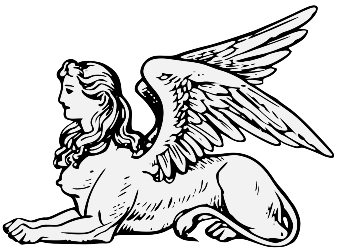
Trasgu - Height: 1'6 feet tall
The trasgu or trasno is the Asturian equivalent of the Leprechaun, a mischievous domestic creature who causes minor annoyance and disorder but who ultimately is relatively harmless. In Asturian tradition he is described as wearing a red cap, and curiously, as having a hole through his left hand. The trasgu disrupts the rhythms of household and work life by stealing small objects such as keys, moving furniture during the night, and generally making a nuisance of himself. In some places it is told that the trasgu can be domesticated, after which he will perform chores around the house until he is released from servitude. This aspect of the Celtic tradition has survived in J.K. Rowling’s house elves, who are bound to serve the households of wizards until they are presented with an item of clothing to wear. Anyone who remembers Dobby the house elf from the Harry Potter books or movies will be familiar with this variant tradition. The trasgu, like the Gremlin from Anglo tradition, is a metaphor for the normal disorder that invades our lives, a reminder that despite our best efforts, some things will never be completely organized or regularized. They are margin of error incarnate. Appropriately, when young children create mischief their elders scold them calling them pequeñus tragsus. This comparison makes a lot of sense when we take into account the trasgu‘s behavior. He is annoying to the point of enraging, but ultimately benevolent, and even lovable. In one tradition, a local family is so fed up with the shenanigans of their house’s trasgu that they pack up and leave. Once their cart is packed up and ready to pull away, the trasgu pops his head from under the bundles and says: ya que vais tous, de casa mudada, tamién múdome you, cula mióu gorra culurada, or in English since you’re all moving away from this house, I’m moving too, with my little red hat! In another version of this scenario, the family is all packed and realizes they left a bundle of corn in the house. They send the youngest son back in to fetch it, who runs into the trasgu at the door, who is coming out carrying the corn, and says: tranquilos, que llévola yo, ‘don’t worry, I’m bringing it,’ then hops onto the cart to follow the family to their next house. The moral of the story: a certain amount of domestic chaos and disorder is inevitable, and like the forces of nature needs to be respected in order that you carry on with your life.




